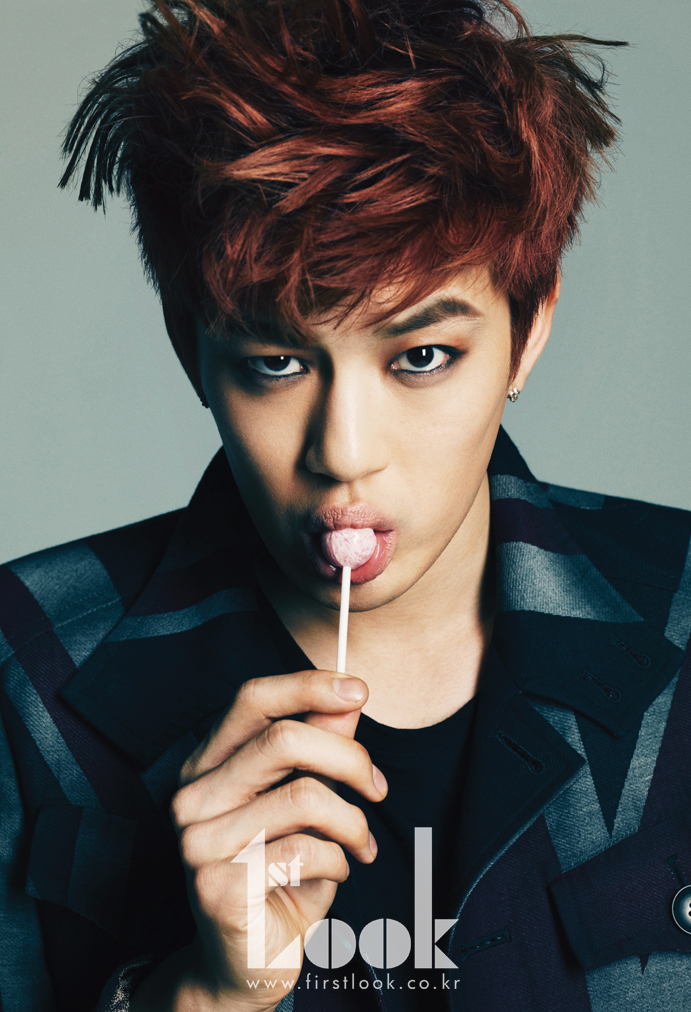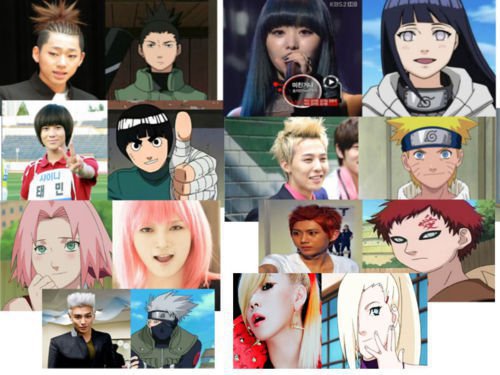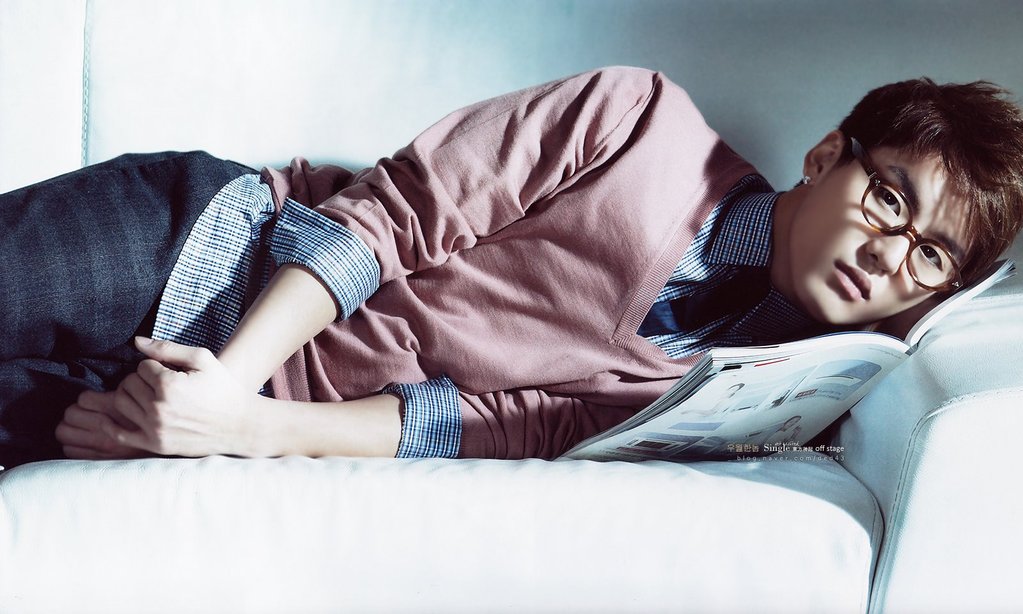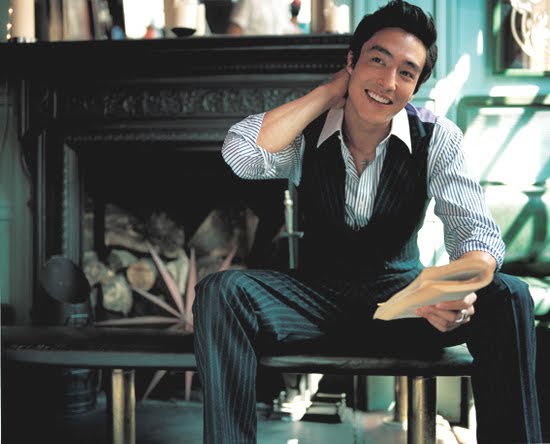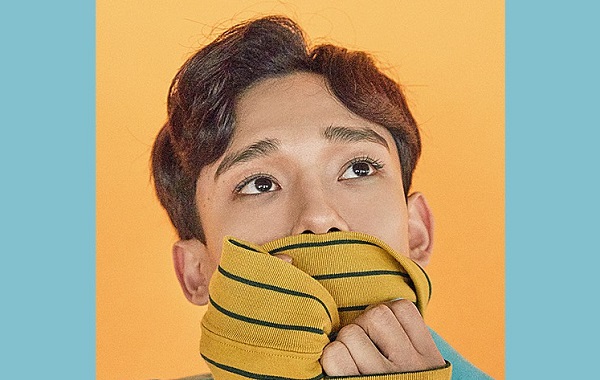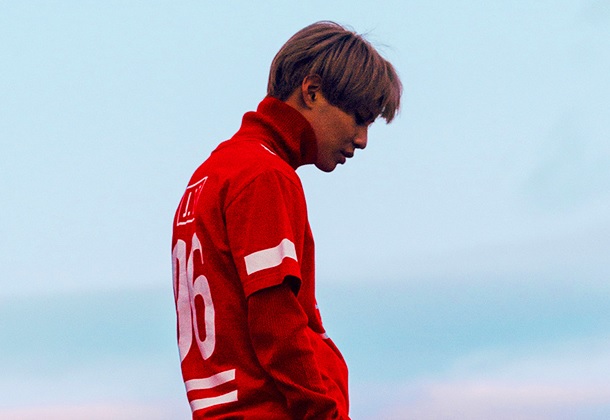This week, we waded into a pool of topics which included athletes in Korean pop culture, the journey of Baby V.O.X, IU‘s new single, Temptation of Wolves, K-pop diets, Cube Entertainment, whether the Wonder Girls have yet peaked, hip-hop producer Primary, Nugu-spotting, EXO-K in Calvin Klein, promoting one group member above others, the past and present Bang Yong-guk, Junsu‘s Tarantallegra album and MV, teasers for Gang Kiz, Norazo‘s “Woman Person,” Manhwa and its relation to Hallyu, Korean-Americans struggling to balance their identities, G.NA then and now, advocacy songs on Inkigayo, Yangpa‘s return, idol dance cover teams, the direction of K-pop, a “Beautiful Night” with Ulala Session, ideal types (mine is to the right), K-pop hair, Mighty Mouth‘s “Bad Boy,” and love intrigue.
The comments sections of our articles were veritably swimming with ideas! Here are five of our favorite comments from this week:
CJux on Manhwa: Another Side to Hallyu:
Interesting article. As a moderate and old consumer of Japanese manga and Korean manhwa, I say South Korea has really good material. But when it comes to (heterosexual) romance, although I really loved Tarot Cafe by Park Sang-sun and Flowers of Evil by Lee Hyeon-Sook, I think in general, I prefer Japanese josei manga. By the way, the part of Korean manhwa being more realistic in general is not really true; that seems to be a fallacious generalization people commit when compare Japanese shounen and shoujo material to Korean manwha and forget Japan has also a huge and profitable section for the young adult audience that prefers more realistic stories (josei and seinen are the mature versions of shoujo and shounen). And even among shounen and shoujo genre, you still have slightly more realistic mangas like Death Note and NANA. The market is very diverse.
Seinen and Josei manga might not be very popular among most Western consumers whose favorite mangas generally include Fruit Baskets or Naruto, but it’s certainly popular among Japanese consumers judging from manga sales (Kimi wa Petto, Vagabond…). Korean manwha, on the other hand, is still not varied enough to be categorized under these many genres (although they do have a rather healthy section for shounen-ai/yaoi). But yes, in general, their ‘less realistic’ stories still do not come close to the epitome of surrealism and stupidity that some Japanese manga are capable of.
In terms of action-focused manga/manhwa, both Japan and Korea have very good products, but unfortunately, scanlation teams are not much interesting in their action manhwa. The lack of interest from American publishers to cover this wonderful section of Korean manhwa is also sad. I feel pity for anyone who is still trying to search for English translations/publications of Chunchu after volume 4 (if you know French or Portuguese you are lucky though).
Anyway, I disagree with your last statement. Unless South Korean government starts promoting manhwa aggressively as they do with K-pop, it won’t change much the relationship of international consumers with manhwa. The reason why Japanese manga became so popular in the West is really because of anime. Anime fans who wanted more of the series purchased the manga, because both genres generally fall under the same aesthetics and taste. But TV series, movies and dramas consumers do not generally purchase in masse the comics series that inspired the movies or series they liked. Most people who went to see all Spider Man movies did not start purchasing and reading the comics the next day.
Unlike anime lovers, a person who likes dramas or movies does not necessarily appreciate comic books, even when those are the basis of inspiration. We are talking about complete different aesthetics; not many people who thought Joo Ji Hoon was hot in Princess Hours would find the same appeal in the Goong‘s drawings for Prince Shin. Most people who know and read manwha, discovered it through Japanese manga, and not K-pop. And such reality will likely continue in the future.
Moreover, the internal South Korean market is not THAT crazy about manhwa in the way Japanese are. The Korean comic book industry even started to decline in 2010. Korean manhwa artists are turning to webcomics to survive. On the contrary, Japanese comic book sales increased in 2011, and this trend is expected to continue.
Also, I don’t know if it’s solely my impression, but I think there’s still a preference for TV adaptation of Japanese manga than manhwa in Korea (at least when it comes to romance genre). Itazura Na Kiss, Absolute Boyfriend, Boys Over Flowers, You’re My Pet, SM’s up-coming TV adaption of Hana Kimi (true, most of them come after the success of the Japanese adaptations, but they have to buy the manga rights to do so). I guess what I’m trying to say with this is that, in order to make manhwa a popular product in the West, it first needs to convince its national consumers. Invest more in manhwa TV adaptations, it will help to support the artists. Invest in anime (Wonderful Days was nice). Use manhwa characters in ads (instead of just idols), like the Japanese do (see ADIDAS Japan World Cup 2010 Commercial).
Despite its weaknesses, I loved almost everything about this video because it’s pretty solid evidence of how Junsu has evolved as a performer/actor/artist/whatever. The idea that the boy with the famous angel pose could pull this off and not look awkward/uncomfortable while doing it proves how well Junsu is able to put himself into a role and make it a part of himself.
The craziness of the video amuses me to no end. Junsu knew he wasn’t going to make it on any of the music shows or whatever, which freed him up to make whatever the hell he wanted. When you read the lyrics and watch all the kinky stuff happening in the MV, it makes the whole thing seem like one giant middle finger to the pop industry establishment. Since this is technically his debut solo album, I don’t think a ballad would have popped the same way this did. We all know Junsu has beautiful vocals; I like seeing what else he has to offer. Do I wish there had been less auto-tune? Yes, but it still worked.
The two criticisms I have about “Tarantallegra” (hey I can spell it now without having to look it up!) are 1) the HIDEOUS orange hair and 2) there are parts of this song that sound very similar to “Xiahtic.” Maybe it’s just me or maybe because it’s too new and hasn’t had a chance to get stuck in my brain yet, IDK, but I’ve been confusing the two.
cpenguin8 on Jinxed by Junsu’s “Tarantallegra”:
I think the difference between autotune used for stylistic/artistic purposes and making one sound better than they actually are should be noted. Most people who follow kpop know Junsu is a great singer, and if you look at the entire concept of Tarantallegra being an intense, mystical, dance song, you can see that the autotune was put in as a stylistic choice. Although it is a little excessive, I wouldn’t say Tarantallegra would sound perfect without it.
I agree on your point about JYJ’s compositions and ballads, as much as I love them, except for “I Turn Around and Around”. While the other ballads kinda blended into each other, “I Turn Around and Around” had a different kind of sound that I liked, it reminded me of a song that might be played in a saeguk drama.
OhJisHo on Korean-Americans Struggle to Balance East and West Identities:
Interesting article. Daniel Henney is actually the reason why I even started watching Kdrama’s. I happened across his name while looking up another Asian actor and noticed Daniel’s name and its lack of any Eastern indication in the slightest so I clicked to see what he looked like and the rest is history — watched Sam Soon, lusted after Bin Hyun, fell in love with Kim Sun Ah and haven’t looked back.
That being said, for him to possibly be discredited by half of his birth culture because he isn’t full Korean or doesn’t have a handle on the language seems silly to me. It is because of his lack of identifying Asian names that caused me to look into him in the first place. Why would a Western guy be a reference on a google search for Takeshi Kaneshiro images? I feel bi-cultural children from all over are a credit to both countries of their parents because it opens doors that may otherwise never be opened or take longer to open. If I hadn’t seen his name randomly and looked into him, then who knows when I would have gotten into Korean Entertainment? Shudder the thought, but maybe never. I doubt it, but that is a possiblity.
One doesn’t know something until it enters their sphere of attention and that goes for languages spoken, cultures learned and the like. To say these bi-cultural individuals have ‘identity crisis’ seems incorrect. It would appear it is the cultures that they enter that have the crisis of not understanding one can be both Asian and American, Hispanic and American, African and American, English and American etc etc etc. and that is a shame to the cultures that give these kids flack.
It is mentioned that the process of ‘how quickly one can assimilate’ helps determine how well they do, but what about the fact that the people living in Korea (I use this example since this is the one given) have lived there for years and years and have had all that time to learn their culture, language and the like. A kid of 19 isn’t going to know all of that straight away. It takes the people living there a lifetime to know it and learn it, so why would these kids in a new environment, far from home, not be cut some slack and the public realize translations can get lost sometimes?
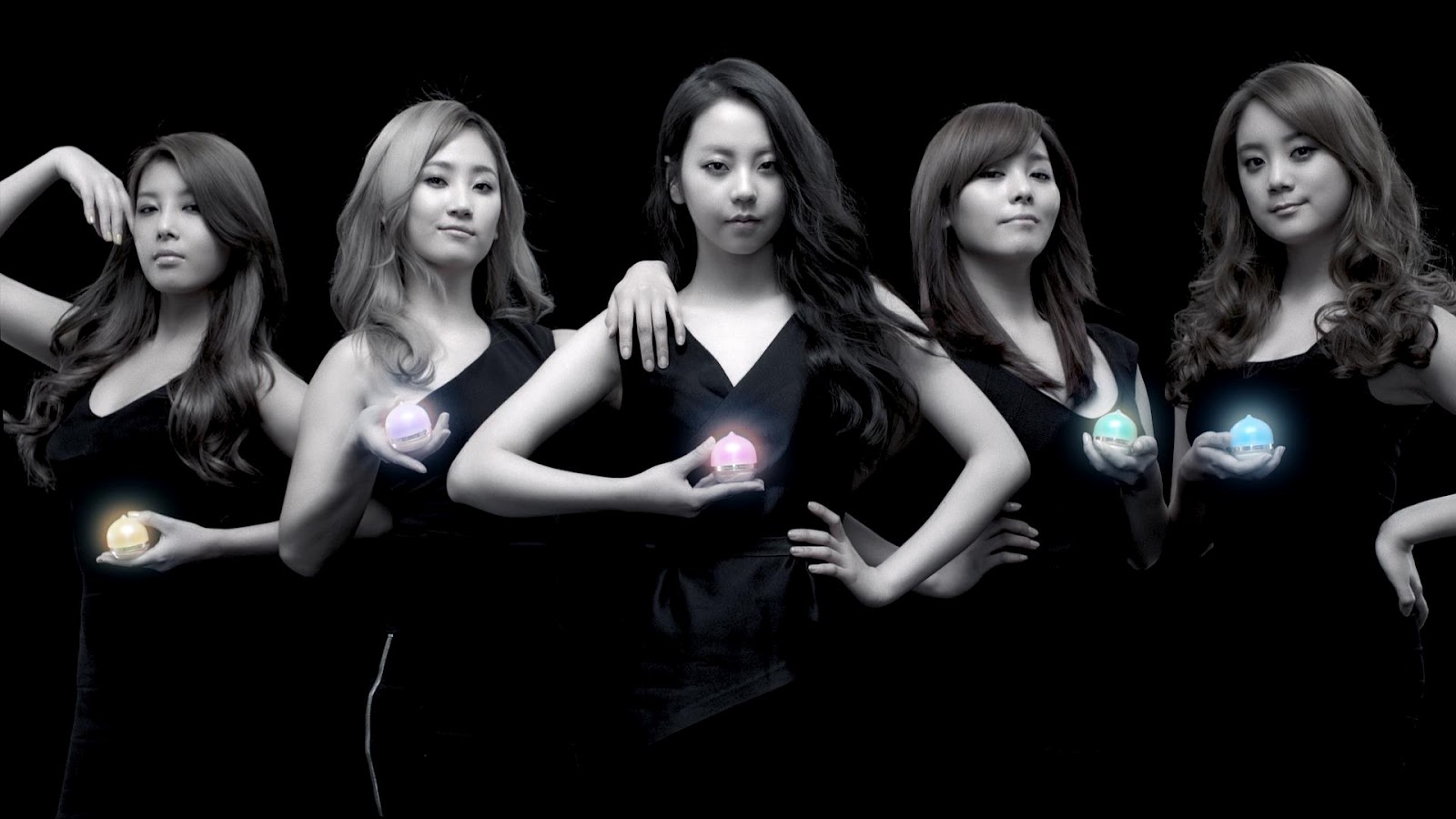 Michael Park on Wonder Girls: Ready to Peak Again or Past Their Prime?:
Michael Park on Wonder Girls: Ready to Peak Again or Past Their Prime?:
I really think the other management companies, for now at least, should take a cue from SM in terms of marketing strategies and group maintenance. If there’s one thing that SM understands (perhaps after their failures from before), is that group popularity is something you have to fight for and then maintain. A group that loses its relevancy in the Korean entertainment industry may still hold it’s prestige in the name, but honestly their popularity will dwindle slowly and fade away. Even though their ‘name’ may provoke respect from people, their popularity will simply not be at the same point. You may argue that ultimately a prestige in name still guarantees a chance of success, but quite honestly in the increasingly competitive kpop (and Korean entertainment industry in general) world, there is little room for complacency.
SM’s global marketing strategies are much smarter. Forgive me for talking about SNSD here (sorry!) but the way they are handling SNSD is seriously something companies should take note of. The way they have handled
SNSD’s domestic and international activities is both balanced and at the same time effective. Instead of promoting long-term in the US like Wonder Girls have, they chose significant ways to broadcast themselves and I guess ‘test the waters’. Performing on Letterman, getting Times Square Coverage, and basically trying to make a splash as a ‘respected foreign artist’ is much smarter than trying to break into the US market by signing deals with Nickelodeon. Sure a Wonder Girls Movie sounds great on the resume, but anyone from the US will know that it doesn’t really guarantee anything.
SM is also much more effective with distributing their groups. They know, for example, that Super Junior are perhaps much more popular in other Asian countries than Korea, and so they focus a lot of the boys’ activities in other Asian countries, while giving them entertainment roles at home instead to keep relevancy.
And more than anything SM is got it down with the company image. I’ve noticed that JYP has started ‘following in SM’s footsteps’ with increased efforts to bow together at the end of concerts or stay together the way SM artists do. But ultimately SM has really managed to use the ‘SM Town’ image to not only spread popularity among their groups (with older, more respected artists overtly being watchful sunbaes to the younger ones) but also to increase international prominence. The SM Town concerts all over the world are making bigger splashes among the international kpop scene than anything else I’ve seen done (JYP and Cube has obviously seen it work, as they’re starting to do them too).
Sometimes International marketing isn’t most effective the JYP-Wonder Girls way. SM has been able to do it by simply increasing their domestic dominance. It’s much more effective to gain prominence at home, and then attract foreign fans like a ‘ripple effect’ than trying to break into a foreign market by holding on to an unstable popularity at home. The people who care about KPOP will find their way to KPOP… and you want to make sure your group is one of the first groups they see.
That’s it for this week’s comments! Thanks for being such egg-cellent commenters!
And as always, feel free to share your own picks below.
(1st Look Magazine, Yen Press, InuzukaTM, CJES Entertainment, JYP Entertainment)
